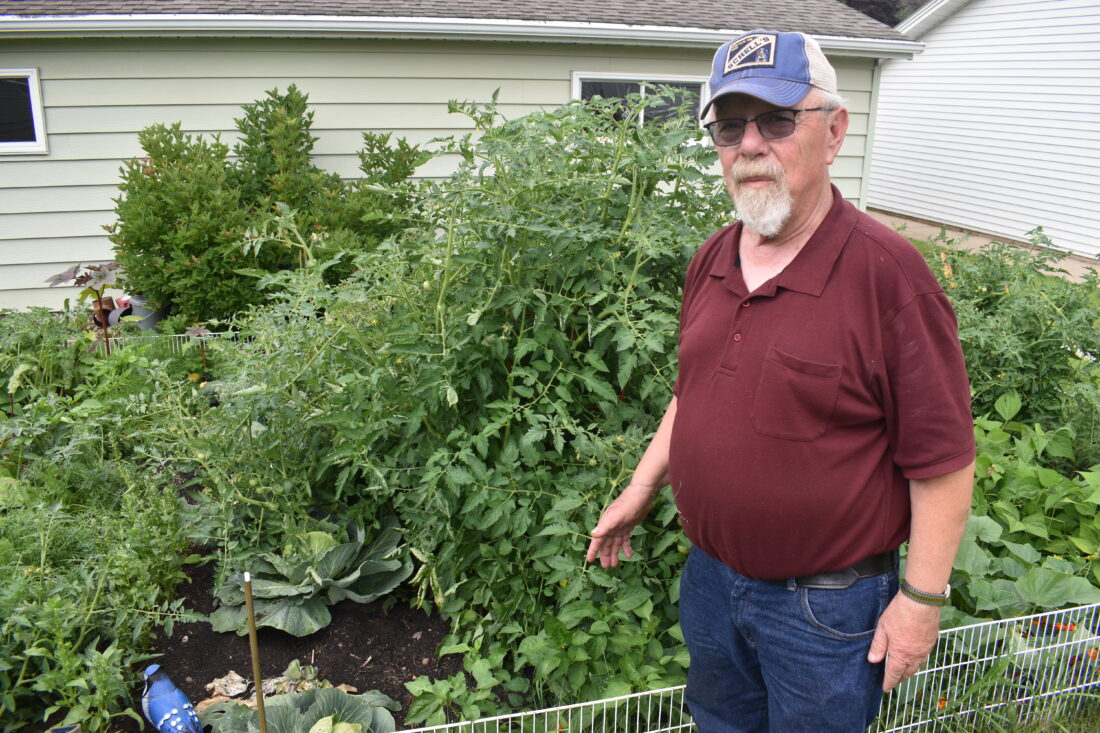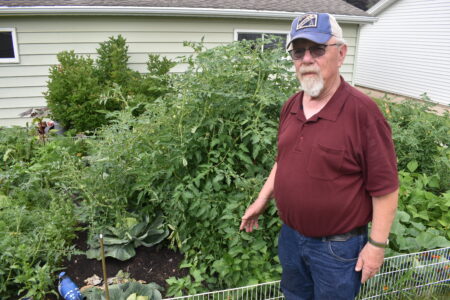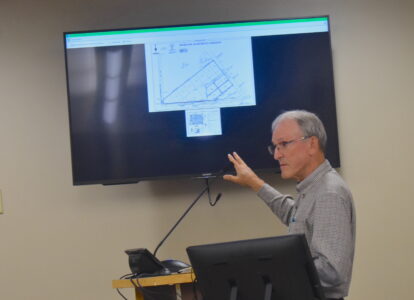The secret behind tall tomato plants …
New Ulm neighbors team up to work vegetable garden

Staff photo by Fritz Busch Ron Domeier of New Ulm stands in front of tomato plants about as tall as he is in a vegetable garden behind his neighbors Irene and Luverne Piotter on Payne St. North.
NEW ULM — Bison manure and some neighborly elbow grease teamed up for tall tomato plants on Payne St. North this summer.
Ron Domeier said his wife Karen and a neighbor, Irene Piotter, began talking about creating a vegetable garden behind the Piotter’s house.
“Luverne (Piotter) tilled it up. The real secret behind the garden is bison manure. Luverne let the manure rot for five years on his farm, brought it to the garden in five-gallon buckets, put it in the garden, let if lay a couple days, the ladies planted and stuff started growing. You could almost hear it grow. We each use half the garden,” said Domeier.
Local pumpkin enthusiasts may recognize Ron Domeier. He hosted Pumpkinfest, an annual technology fundraiser for New Ulm Area Catholic Schools hosted by the Domeiers at their home west of New Ulm.
At Pumpkinfest, Domeier pulled cars of children through a corn maze with his lawn tractor until he and his wife moved to New Ulm three years ago.
“I don’t take any credit for the garden. It was Luverne and his manure and his wife Karen and neighbor Irene, who did all the planting,” said Domeier.
The garden includes marigold flowers, known for attracting pollinators and repelling garden pests.
The robust vegetable garden includes tomatoes, rhubarb, beets, green beans, zucchini, cabbage, cucumbers, among others.
“Farmers like to be busy. They aren’t afraid of work. Vegetable gardens can give you lots of fresh food. We’ve picked beets, rhubarb cucumbers, green beans and zucchini. There are no red tomatoes yet,” Domeier said.
He said his wife Karen cans tomatoes.
Bison manure can be an effective organic fertilizer, providing essential nutrients for plant growth. It is rich in nitrogen, phosphorus, and potassium, vital for plant growth. It also contains beneficial micro-organisms that enhance soil quality, according to the University of Minnesota Extension Service.





